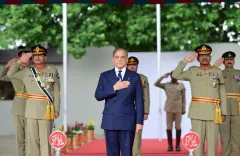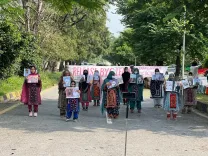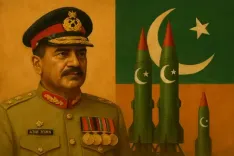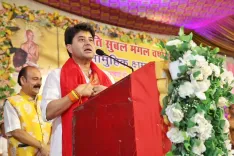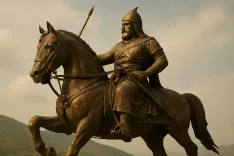How Did EAM Jaishankar Recognize Mexico's Outgoing Envoy's Role?

Synopsis
Key Takeaways
- EAM Jaishankar met with Federico Salas to appreciate his contributions.
- The meeting emphasizes the importance of India-Mexico bilateral relations.
- Both countries are collaborating in areas like health and technology.
- India and Mexico share historical ties dating back to 1950.
- They are set to celebrate 75 years of diplomatic relations in 2025.
New Delhi, Sep 9 (NationPress) External Affairs Minister (EAM) S Jaishankar held a meeting with Federico Salas, the outgoing Ambassador of Mexico to India, where he acknowledged the ambassador's significant efforts in enhancing bilateral relations.
Following their discussion, EAM Jaishankar expressed his sentiments on X, stating, "I was glad to meet Ambassador Federico Salas of Mexico for his farewell today. I value his personal contributions to fortifying our relationship and wish him all the best in his future pursuits."
In July, Jaishankar engaged with Mexico's Secretary of Foreign Affairs, Juan Ramon de la Fuente, during the BRICS Summit held in Rio de Janeiro, Brazil. Their conversation revolved around further enhancing their collaboration, particularly in the domains of health, digital technology, and space.
Post-meeting, Jaishankar shared on X, "I was pleased to meet with Juan Ramon de la Fuente, Secretary of Foreign Affairs of Mexico, today in Rio de Janeiro. We discussed the advancement of our partnership focusing on health, digital, technology, and space."
India and Mexico share commonalities in geo-climatic conditions, biodiversity, and cultural values, boasting a rich civilizational heritage with connections that span centuries. Mexico was the first nation in Latin America to establish diplomatic relations with Independent India back in 1950, and both countries are set to commemorate 75 years of diplomatic relations in 2025. They actively collaborate on international platforms, including the United Nations and G20.
In addition to its embassy in Mexico City, India maintains three Honorary Consulates located in Guadalajara, Monterrey, and Cancun. Statues and busts of Mahatma Gandhi can be found in several prominent cities in Mexico, such as Guadalajara, Acapulco, Mexico City, Guanajuato, Cancun, and San Luis Potosi. The Mexican wheat varieties, particularly the Sonora wheat and other hybrids developed through cooperation between Indian scientists and their counterparts at CIMMYT in Mexico, played a crucial role in the success of the Green Revolution during the 1960s and the subsequent achievement of food self-sufficiency in India.

